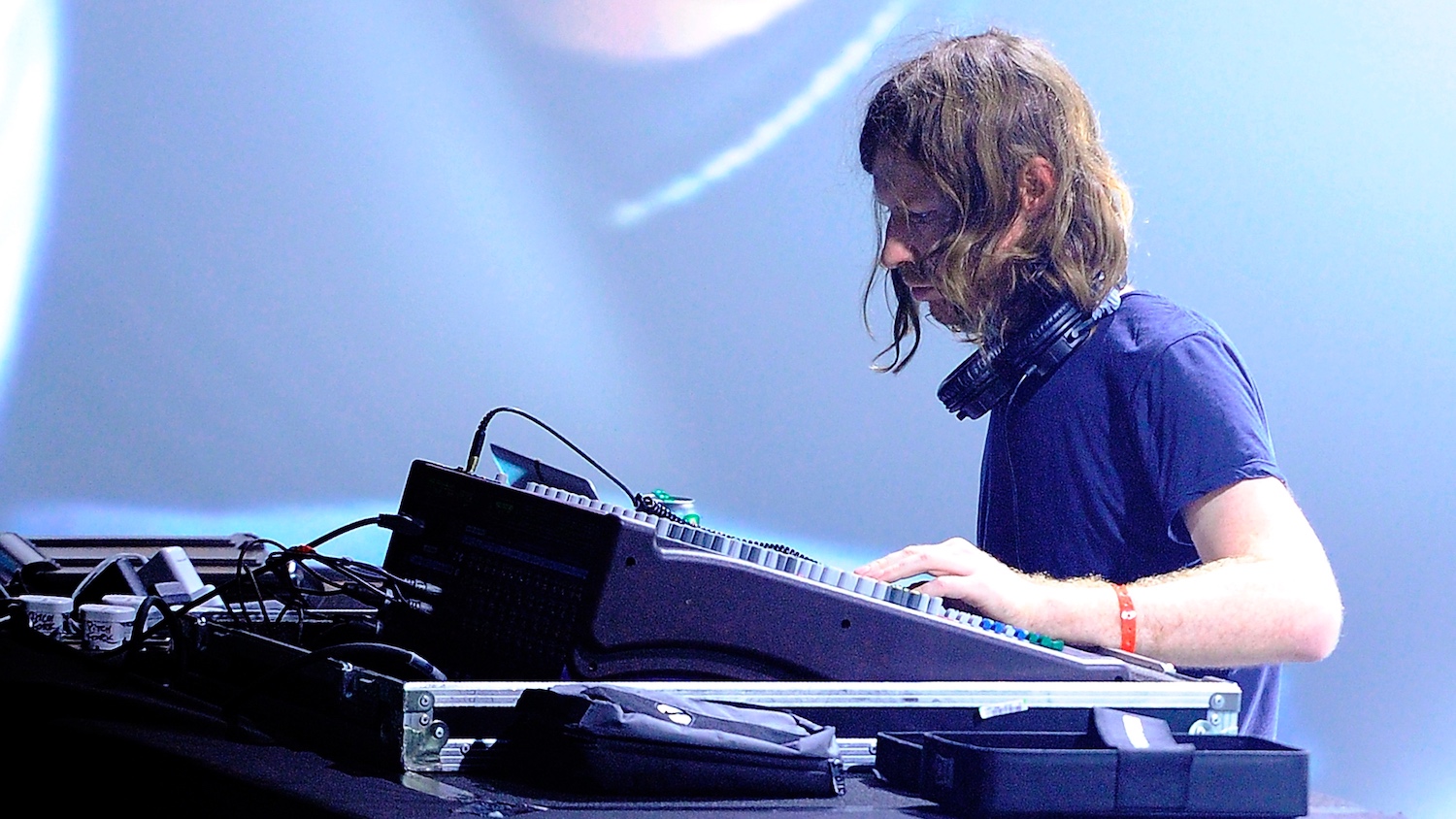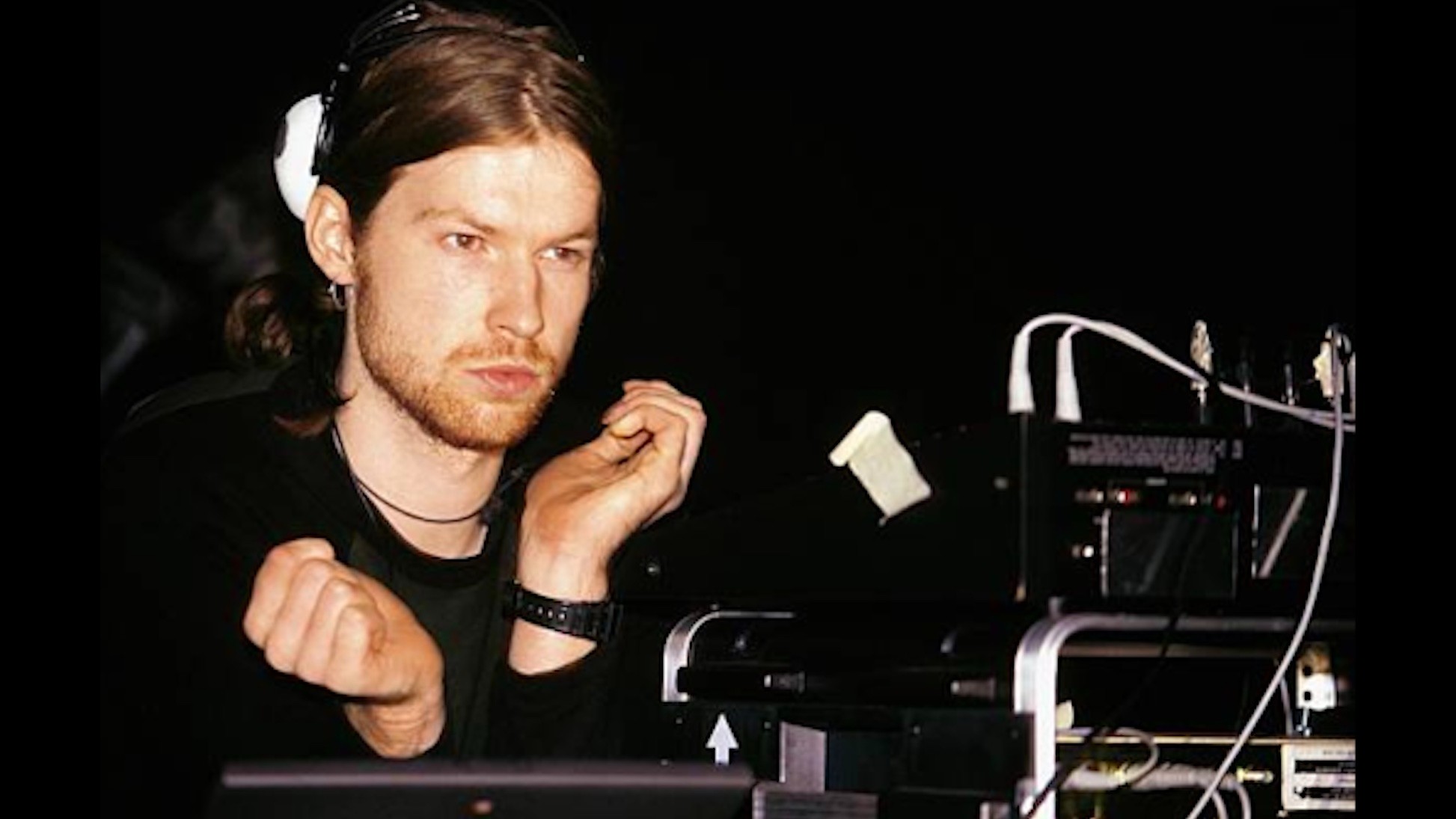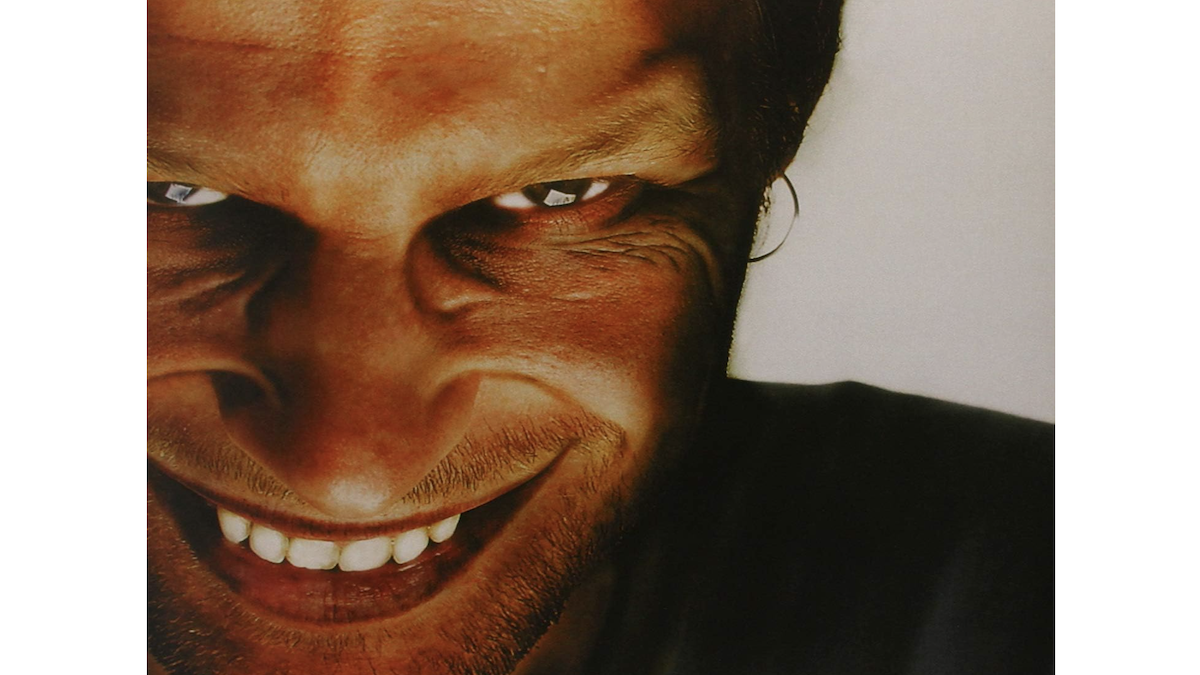1997 interview reveals that Aphex Twin owned a tank, wanted to buy a submarine and used the vault of the former bank he owned as a reverb: "It would be great for parties"
And there's more about lucid dreams, the music software he used at the time and (maybe) getting a job if no-one bought his records

Want all the hottest music and gear news, reviews, deals, features and more, direct to your inbox? Sign up here.
You are now subscribed
Your newsletter sign-up was successful
A rare 1997 Aphex Twin interview has recently been re-doing the rounds in which Richard James talks about all of those myths that surrounded him at the time, including the tank, the lucid dreams and the recording studio in a bank vault.
The interview was originally done with Space Age Bachelor Magazine and in it James detailed his then imminent move to London – not in the tank, though, as it would take two days to get there and only did 4 miles per gallon.
I had too many years of getting grief from my neighbours for noise
Aphex Twin
As well as talking (a lot) about said tank – like that he only had four rounds of ammunition left for it – James talked about a bank vault he'd just bought in London, in which he was planning to install a recording studio. It was a purchase that he hoped would allow him to make music without annoying the neighbours.
"I'm going to put my studio in it eventually. I haven't put it in yet as I've got rats and got to get them out. I've got all my stuff in there now, my computer, my bike and all that sort of stuff.
"I'm going to be greedy and use it on my own. I had too many years of getting grief from my neighbours for noise and stuff, so I'm going to enjoy living on my own and making as much noise as possible.
"The bank is wicked because I use it as an effects unit as it has a big stairwell with huge reverb. I have got really good mics and speakers on the stairs so I can use it. The actual building sounds wicked."

In the interview, James also revealed how his then current studio was bedroom based, mostly so he could turn any of those lucid dream ideas into tunes, although he did admit he was doing this less and less because of the required training and effort involved.
Want all the hottest music and gear news, reviews, deals, features and more, direct to your inbox? Sign up here.
I write my own software – that's what I spend most of my time pissing around doing. It's in my blood I reckon
Aphex Twin
"It takes a lot of practice to remember them [the tunes] when you wake up," he said. "The training is remembering it basically. Most of the time I have a dream and think of a wicked tune and then can't remember it. Sometimes I get ideas for a little melody or sounds or a concept, or sometimes I have the whole thing finished in my head. I can get quite close when I'm awake. You never get it the same but you get rough copies. I've got to have my studio close to my bed. That's the only important factor. I've got my laptop so I go to bed with my laptop."
And on the software installed on that laptop?
"I've got everything," James claimed. "It's jam-packed full of software. I write my own software now as well. That's what I spend most of my time pissing around doing. I've done it all my life. I did it when I was younger making games and stuff and did machine code and electronics in college. It's in my blood I reckon."

Perhaps most interesting of all was James discussing the number of people buying his music, and he seemed genuinely astonished that his then last album (1996's Richard D James album) had shifted 100,000 copies worldwide.
I wouldn't care if they didn't buy [my music]. I'd just get a job. But I've got loads of money now so I wouldn't have to get a job
Aphex Twin
"I can't comprehend more than 100 people buying my records, so when you sell 100,000 or whatever, it's pretty bizarre. I wouldn't care if they didn't buy it anyway. I'd just get a job. But I've got loads of money now so I'd probably live off the interest so I wouldn't have to get a job."
And then there was the submarine. Having heard that he could pick up a second-hand sub for around £50,000, James said:
"I'd love it. They're selling off Russian submarines. I'm sure it would be a lot of hassle. You'd probably have to hire a crew to work it for you though. I'd like to have one. It would be wicked for parties and stuff."
Finally, when asked if making music was an addiction, James replied with a classic.
"I dunno, sort of. I'd get pretty strung out if I didn't do it. I just bought a new laptop yesterday and I've done four tracks on it already."
Listen to the full interview below or revisit our Classic Interview with Aphex Twin.


Andy has been writing about music production and technology for 30 years having started out on Music Technology magazine back in 1992. He has edited the magazines Future Music, Keyboard Review, MusicTech and Computer Music, which he helped launch back in 1998. He owns way too many synthesizers.
